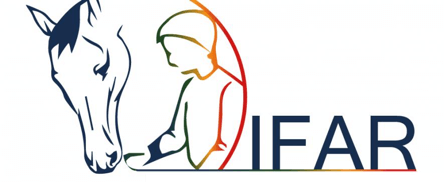Retraining of Racehorses (RoR) is British Horseracing’s official charity for the welfare of horses who have retired from racing. Here, RoR’s Welfare Consultant, Paul Jepson, describes his role in ensuring that racehorses continue to receive the best care once they bow out of their racing career.
There are many different facets of RoR’s work, including raising funds from within the Racing Industry for the retraining and rehoming of former racehorses, promoting the adaptability and versatility of racehorses to other equestrian activities, running and funding a well-established programme of competitions and educational events across the country, providing information for owners and trainers in both the Racing and Equine Industries to assist with the rehoming and retraining of their former racehorses and providing a safety net to support and care for ‘vulnerable’ former racehorses.
My role very much focuses on vulnerable horses, and specifically RoR’s Vulnerable Horse Scheme – a national scheme set up in January 2016. On the whole, the majority of former racehorses have a smooth transition when they retire from racing, however, there are times when this isn’t the case. The role of the scheme is to make sure horses in the latter category are given the support they need. The Vulnerable Horse Scheme is not a new idea, RoR has been running similar initiatives for many years, but this scheme provides a formal structure and platform for this work to continue.
There can be a number of reasons why a former racehorse may require the support, among the most common is a lack of resources on the part of the owners, be that money or time. It is easy to underestimate the cost and time commitment required to look after a horse.
The scheme involves a network of 15 equestrian and retraining centres across the country, each one selected and approved by RoR, which are on stand-by to take in a vulnerable horse when need be. Funding for the centres and the scheme is paid on a case-by-case basis and comes from the racing industry via a levy paid for by owners and participants.
The process of a horse arriving at one of our centres may start with a phone call from an individual who’s found a horse, or from the owner themselves, realising they need help, or perhaps from the RSPCA. We then arrange for the horse to be examined and moved into one of the centres as soon as possible, working with our colleagues at the RSPCA and World Horse Welfare as appropriate.
These centres are run by incredibly dedicated teams who work closely with the horses to, first and foremost, make sure that the horses are in good health. Secondly, they get to know the horses, and assess:
the type of new home that they would be most suited to;
- what they are good at and their options for a second career – e.g. in dressage, showing or eventing etc.
- The great news is that these centres often have a waiting list of people who are looking to provide a loving home for a former racehorse.
The welfare of these horses is always the priority, and the potential new owners go through a rigorous assessment process to ensure that they are fully prepared to take on this big responsibility. This process involves an assessment of the potential owner’s financial situation, their riding ability, level of overall resources required to look after a horse, and a strong level of knowledge of horses and the high level of care they should receive.
This process is very robust and as a result it is incredibly rare for a horse that has been rehomed through us to come back to us. At RoR, we preach responsible ownership – people must not take on a horse if they haven’t got the resources. It’s ultimately an educational message that we’re working to push out far and wide.
One of the highlights of my job is seeing a formerly vulnerable horse healthy and happy, and enjoying life. It makes our work incredibly rewarding.
It’s a joy to see some of these horses taking part in the competitions that RoR run around the country, and it’s equally pleasing to hear about horses which are simply enjoying life as happy hackers.
I think a really important aspect of what RoR is doing is creating a market and a demand for former racehorses. These animals are incredible – they are versatile and adaptable, and we want to provide the guidance, support and opportunities to allow them to flourish in their life after racing.
It is worth reiterating that it is rare that horses are taken on by the Vulnerable Horse Scheme. There is a strong obligation on owners and trainers across the industry to retire horses responsibly, and make sure that horses are suitably placed – and in most cases this is indeed the case. Through our work, we want to provide all former racehorses with the highest quality of care and make sure that whatever avenue they take after racing, they are happy and healthy.
*This article is courtesy of Paul Jepson and thehorsecomesfirst.com
http://www.thehorsecomesfirst.com/news/item/the-welfare-of-the-horses-is-always-the-priority
